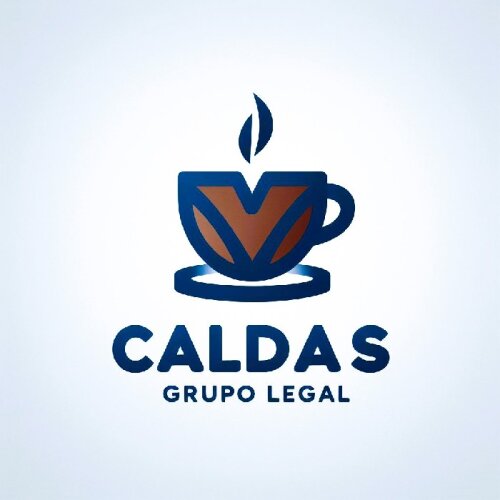Best Faith-Based Law Lawyers in Manizales
Share your needs with us, get contacted by law firms.
Free. Takes 2 min.
List of the best lawyers in Manizales, Colombia
About Faith-Based Law in Manizales, Colombia
Faith-based law refers to legal matters involving religious communities, organizations, and individuals as they relate to religious beliefs, practices, and institutions. In Manizales, Colombia, a city recognized for its religious diversity and cultural traditions, faith-based law typically covers church governance, religious education, charitable activities, property management, and the freedom to practice religion. The Colombian Constitution guarantees freedom of religion, and there are specific laws and regulations at both the national and local levels to ensure the coexistence of various faiths and the proper functioning of religious organizations.
Why You May Need a Lawyer
Legal assistance in faith-based law becomes important in a variety of scenarios involving both individuals and religious entities. Common situations include:
- Establishing or registering a religious organization or church.
- Navigating property or land ownership issues for places of worship.
- Understanding tax obligations and benefits for religious institutions.
- Addressing internal disputes within a religious community.
- Defending or claiming religious rights and freedoms under the law.
- Complying with regulations concerning faith-based education or charity work.
- Managing employment matters or volunteer work in a religious context.
Local Laws Overview
In Manizales, faith-based law is influenced by national Colombian legislation and local regulations:
- The Colombian Constitution provides strong protections for freedom of religion and belief.
- Law 133 of 1994, known as the Law of Religious Freedom, sets the framework for operating religious entities in Colombia and ensures equal treatment of all faiths before the law.
- Religious organizations must register with the Ministry of Interior through the Special Registry of Religious Entities to gain legal status and access certain rights.
- Registered entities enjoy tax exemptions and can own property, but must comply with annual reporting and administrative requirements.
- Manizales may have municipal ordinances relating to the use of public spaces by religious groups, noise regulations, and zoning laws for places of worship.
- Faith-based schools and educational projects must comply with educational norms established by national and local authorities.
Legal matters can become complex due to the intersection of religious autonomy and civil law, making specialized legal guidance essential.
Frequently Asked Questions
What does religious freedom mean in Manizales?
Religious freedom in Manizales means individuals and communities can freely practice, express, and organize according to their faith or belief, as protected by the Colombian Constitution and related laws.
Do religious organizations need to be officially registered?
Yes. Religious organizations must register with the Ministry of Interior to obtain legal recognition, access tax exemptions, and lawfully operate as an entity.
Are there tax benefits for religious entities?
Registered religious organizations enjoy certain tax exemptions on property and income directly related to religious activities, but must still follow reporting requirements.
What legal status do places of worship have?
Once registered, places of worship are considered legal entities that can own property, enter contracts, and be represented in legal matters.
Can churches or religious groups own land in Manizales?
Yes. Legally registered religious entities can own, lease, or manage land and property in Manizales, subject to municipal zoning laws and property regulations.
What happens if there is a conflict within a religious organization?
Internal disputes are typically resolved according to the organization's statutes or bylaws, but civil courts may become involved if legal rights are at stake.
How does faith-based law interact with national education laws?
Faith-based schools must meet the minimum educational standards set by Colombian law but may offer instruction in their religious tradition, provided they respect educational rights and freedoms.
Are faith-based organizations allowed to operate charitable activities?
Yes. Registered religious organizations can run social programs and charitable activities, often collaborating with governmental and non-governmental bodies.
Does religious law override Colombian civil law?
No. While religious communities have autonomy in internal matters, all entities and individuals must comply with national and local laws. Faith-based norms do not supersede civil law in Colombia.
Where can individuals report violations of religious rights?
Concerns or violations can be reported to local municipal authorities, the Ministry of Interior, or the Office of the Personero (Ombudsman) in Manizales.
Additional Resources
If you need more information or legal support, consider the following resources in Manizales and Colombia:
- Ministry of Interior, Religious Affairs Directorate – For registration and national regulations regarding religious entities
- Manizales Municipal Government – For information on local ordinances and public space guidelines
- Office of the Personero (Ombudsman) of Manizales – For civic rights protection and reporting violations
- National Registry of Legal Entities – For procedures related to the legal status of organizations
- Legal aid clinics at local universities – For free or low-cost legal consultations
- Faith-based legal advocacy groups – For support in matters with a religious component
Next Steps
If you require legal assistance in faith-based law in Manizales, here is how you can proceed:
- Identify the specific legal issue or question you have, such as registration, property, education, or rights protection.
- Gather all relevant documents, such as organizational statutes, registration papers, property deeds, or correspondence related to your case.
- Contact a qualified lawyer experienced in Colombian faith-based law, ideally with knowledge of local regulations in Manizales.
- Consider reaching out to the Ministry of Interior or the Office of the Personero for initial guidance or referrals.
- Attend a legal consultation to discuss your case and receive tailored legal advice.
- Follow legal advice carefully, ensuring compliance with both religious statutes and applicable Colombian law.
Navigating faith-based legal matters can be complex, but with the right information and legal support, individuals and organizations in Manizales can protect their rights and fulfill their religious mission within the bounds of the law.
Lawzana helps you find the best lawyers and law firms in Manizales through a curated and pre-screened list of qualified legal professionals. Our platform offers rankings and detailed profiles of attorneys and law firms, allowing you to compare based on practice areas, including Faith-Based Law, experience, and client feedback.
Each profile includes a description of the firm's areas of practice, client reviews, team members and partners, year of establishment, spoken languages, office locations, contact information, social media presence, and any published articles or resources. Most firms on our platform speak English and are experienced in both local and international legal matters.
Get a quote from top-rated law firms in Manizales, Colombia — quickly, securely, and without unnecessary hassle.
Disclaimer:
The information provided on this page is for general informational purposes only and does not constitute legal advice. While we strive to ensure the accuracy and relevance of the content, legal information may change over time, and interpretations of the law can vary. You should always consult with a qualified legal professional for advice specific to your situation.
We disclaim all liability for actions taken or not taken based on the content of this page. If you believe any information is incorrect or outdated, please contact us, and we will review and update it where appropriate.









